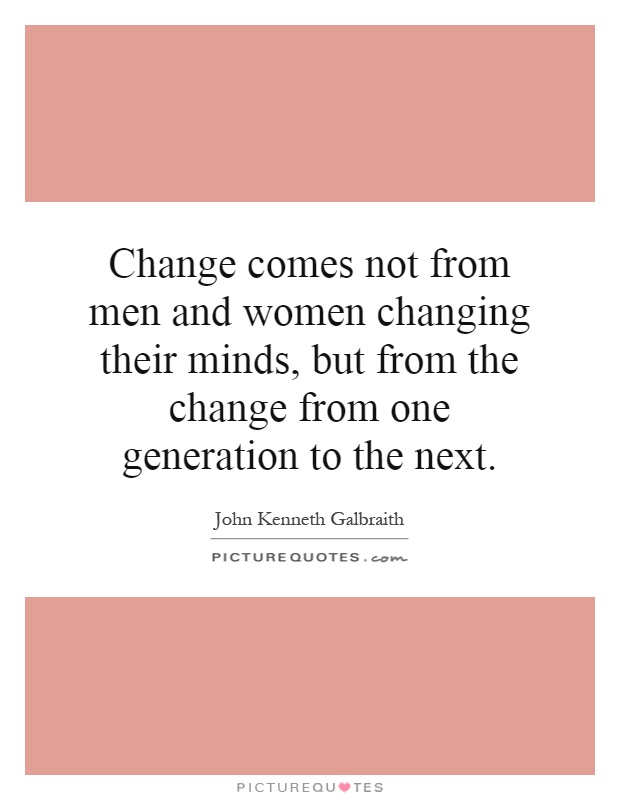Change comes not from men and women changing their minds, but from the change from one generation to the next

Change comes not from men and women changing their minds, but from the change from one generation to the next
John Kenneth Galbraith, a renowned economist and author, believed that change does not come from individuals changing their minds, but rather from the shift in attitudes and beliefs from one generation to the next. This idea is reflected in his work and writings, where he often emphasized the importance of societal progress and evolution over time.Galbraith's perspective on change can be seen in his analysis of economic systems and social structures. He argued that lasting change cannot be achieved through the efforts of a few individuals, but rather through the collective actions and beliefs of an entire generation. This is because societal norms and values are deeply ingrained and resistant to change, making it difficult for individuals to bring about significant shifts on their own.
Instead, Galbraith believed that change occurs gradually as new generations come of age and bring with them different perspectives and ideas. These shifts in attitudes and beliefs can lead to changes in policies, institutions, and social norms that ultimately shape the course of society. Galbraith saw this intergenerational change as a natural and necessary process for progress and development.
One of the key examples of this concept can be seen in Galbraith's analysis of the Great Depression and the New Deal era in the United States. He argued that the economic and social reforms of this period were not the result of a sudden change of heart by policymakers, but rather the culmination of years of social movements and generational shifts that pushed for greater government intervention in the economy.












 Friendship Quotes
Friendship Quotes Love Quotes
Love Quotes Life Quotes
Life Quotes Funny Quotes
Funny Quotes Motivational Quotes
Motivational Quotes Inspirational Quotes
Inspirational Quotes